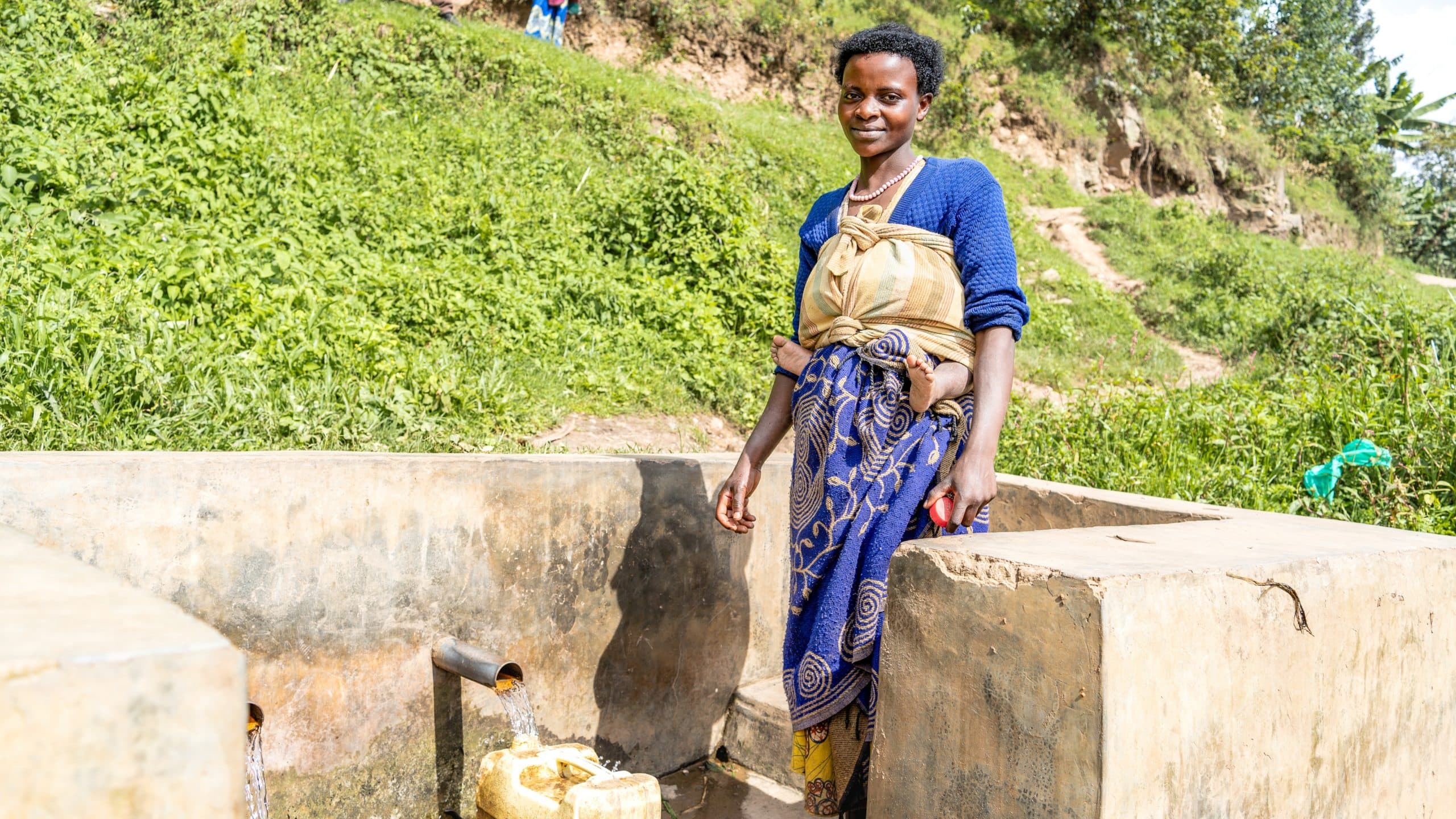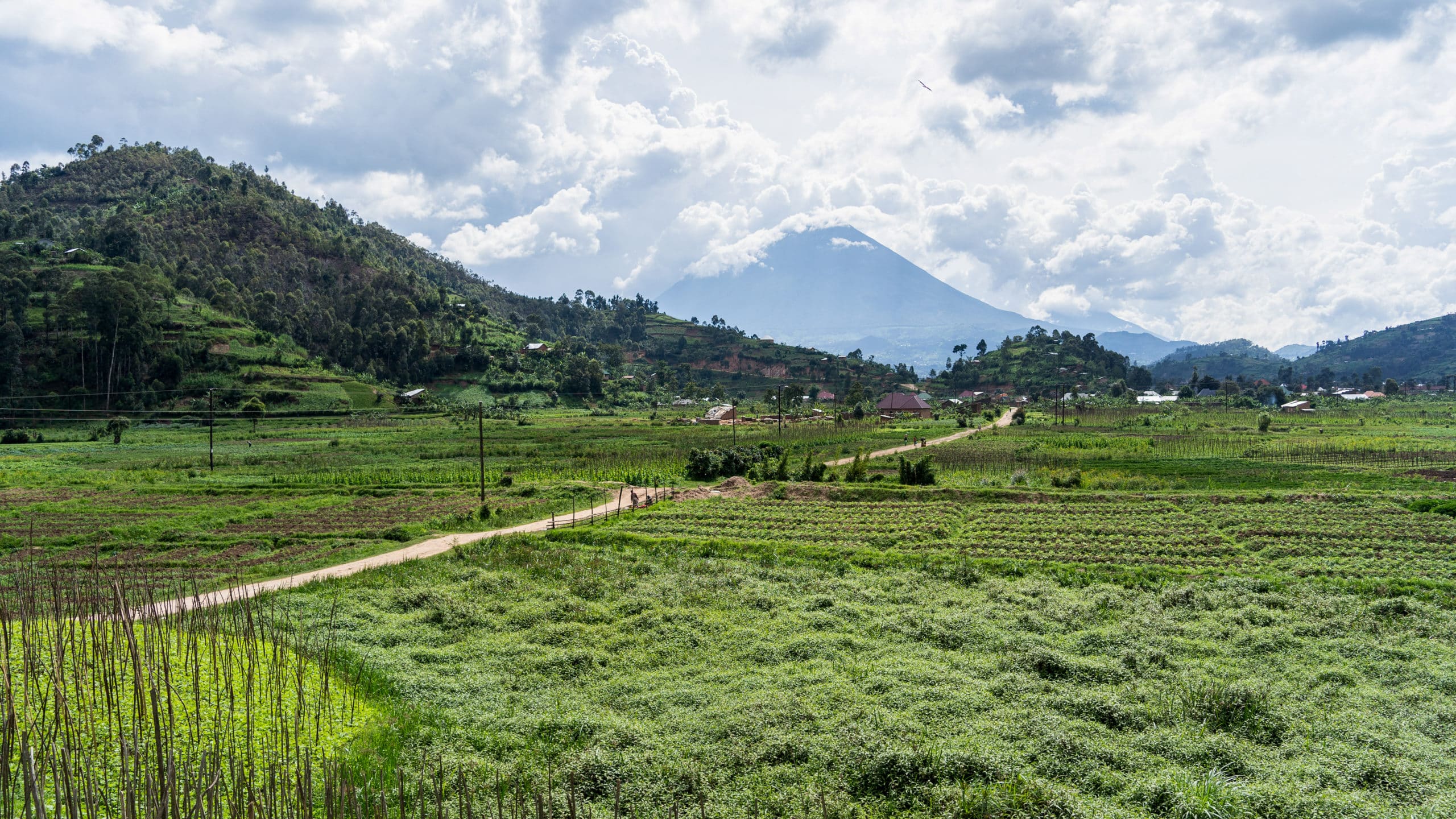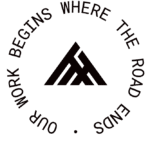A Well of Hope, Health, and Prosperity

In a remote hilly village in the district of Kisoro, south-west Uganda, 21-year-old Patience’s daily routine revolved around fetching water. Characterized by lush green hills, the beautiful landscape of Patience’s village belies the challenges faced by the residents, particularly in accessing clean and safe water.
The hilly terrain would make it difficult for people like Patience to travel long distances to a stream to fetch water, winding its way down from the hills. This daily endeavor took over an hour, and the water obtained was often contaminated with dirt and debris. “The water had a lot of sand and mud; during the rainy season, it would even flood, making it very dangerous for us to access the water,” Patience said. The community also resorted to collecting rainwater directly, but it proved insufficient and undependable.
In 2019, Patience’s community and RTV joined hands to improve household income sustainably. While the program’s primary objective was to increase incomes through agriculture and small businesses, a holistic approach to poverty alleviation requires addressing development barriers and creating an enabling environment for the communities to participate. During the initial consultation process, access to clean water was identified as a major barrier to overall development. The time spent fetching water would take away time and space for economic activity. Moreover, with women and girls bearing the majority of water collection responsibility, it also meant greater inequity in participation in income generation.

As part of our program, RTV constructed a shallow well to improve access to clean and safe water in the village. Once built, WASH and Water User Committees were established to ensure that the community sustainability manages the operations and maintenance independently. Training sessions were also conducted on good hygiene practices, such as handwashing and using pit latrines and tippy taps. The impact on Patience’s life was immediate and evident. The water source was conveniently located near her home, significantly reducing the time and effort required to fetch water. Improved knowledge of good hygiene and sanitation reduced the instances of waterborne diseases in the community. “We used to fall sick frequently, but since the construction of the water source and availability of clean water, things improved a lot,” Patience remarked. ” I am especially relieved that my newborn baby will not suffer from frequent diseases and will be healthy,” she further added.
The time saved from water-fetching duties has allowed Patience to focus on her farming activities. Cultivating beans, Irish potatoes, sweet potatoes, and maize, she has increased agricultural productivity by applying Good Agronomic practices she learned in the RTV training sessions. She has also started investing some of her increased earnings in the Women’s Village Savings and Loans Association (VSLA).
“The water is very safe for drinking and cooking; the distance is short. We now wash our clothes more frequently, and we are no longer worried about headaches and flu which we used to get from the stream,” Patience concluded, throwing light on the changes now evident in her community with improved access to clean water.
Be part of our journey. Support last-mile communities by supporting Raising The Village.
Let’s Stay Connected

